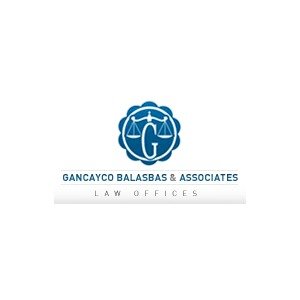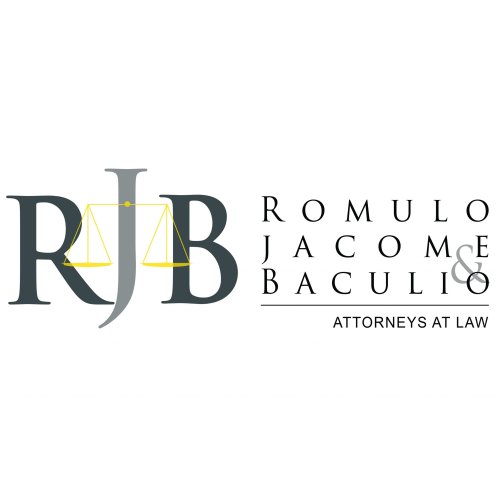Best Private Equity Lawyers in Manila
Share your needs with us, get contacted by law firms.
Free. Takes 2 min.
List of the best lawyers in Manila, Philippines
About Private Equity Law in Manila, Philippines
Private equity is an important area of finance in the Philippines, particularly in the capital city of Manila where many financial institutions, investment firms, and corporations operate. Private equity involves investing capital into private companies or taking public companies private, usually to support growth, restructuring, or acquisitions. In Manila, these transactions are governed by a combination of local regulations, corporate law, and the rules of the Securities and Exchange Commission (SEC). Given the country’s dynamic economic environment and growing middle-market, private equity transactions are increasingly common and play a significant role in the nation's economic development.
Why You May Need a Lawyer
Private equity transactions in Manila can be complex and require detailed legal oversight. There are many situations where someone may need legal help, including:
- Negotiating or drafting investment agreements
- Conducting due diligence on target companies
- Navigating regulatory requirements set by the SEC and other authorities
- Structuring deals to comply with foreign ownership limits or other restrictions
- Assisting with mergers, acquisitions, or management buyouts
- Ensuring compliance with capitalization and reporting rules
- Advising on tax implications of private equity investments
- Resolving disputes arising from investments or company management
Having a lawyer guide you through the process helps ensure that transactions are legally sound, risks are managed, and unexpected issues are minimized.
Local Laws Overview
Several key aspects of Philippine law are relevant to private equity in Manila:
- Foreign Investment Restrictions: The Philippines imposes limits on foreign ownership in certain sectors, as detailed in the Foreign Investments Act and the Constitution.
- Corporate Law: The Revised Corporation Code governs the creation, management, and dissolution of companies, including requirements for shareholders and board composition.
- Securities Regulation: The Securities Regulation Code (SRC) outlines the legal framework for the issuance and trading of securities, including private placements and public offerings.
- Taxation: The Tax Code addresses capital gains, withholding taxes, value-added tax, and other tax matters related to private equity transactions.
- Anti Money Laundering: Compliance with the Anti Money Laundering Act (AMLA) is essential for investments, requiring proper background and source of funds checks.
Additionally, private equity transactions may trigger regulatory notifications, mandatory disclosures, and compliance requirements, depending on the size and nature of the investment.
Frequently Asked Questions
What is private equity?
Private equity refers to capital investment in companies that are not listed on public stock exchanges. These investments are generally used to acquire, expand, or restructure businesses.
Are foreigners allowed to invest in private equity in Manila?
Yes, foreigners can invest in private equity in the Philippines, but there are sectoral restrictions on foreign ownership, especially in land ownership and certain industries.
What government agencies regulate private equity in Manila?
The primary regulators are the Securities and Exchange Commission and the Bangko Sentral ng Pilipinas. Some transactions may also fall under the Philippine Competition Commission.
Do all private equity transactions require SEC approval?
Not all private equity transactions require advance SEC approval, but some may require notification, particularly if securities are being offered to the public or if the transaction impacts regulated entities.
What is due diligence and why is it important in private equity deals?
Due diligence is the process of investigating a target company's legal, financial, and operational status to assess risks and validate information before completing an investment.
How long does a typical private equity transaction take in Manila?
The timeline varies but most transactions take several months, depending on the complexity of the deal and the regulatory requirements involved.
What are the main risks involved in private equity investments?
Risks include regulatory compliance, market volatility, management performance, due diligence errors, and disputes among investors or with company management.
How are private equity funds structured in the Philippines?
Private equity funds are typically structured as corporations, partnerships, or investment companies, and must comply with local laws on corporate governance and investment.
What tax considerations apply to private equity investments?
Taxes may include capital gains tax, income tax, value-added tax, and withholding tax, depending on the transaction structure and entities involved.
Can private equity investors have control over company management?
It depends on the agreement between the investor and the company. Investors may negotiate for management rights, board representation, or veto powers as part of the investment.
Additional Resources
Several organizations and regulatory bodies can provide more information and assistance regarding private equity transactions in Manila:
- Securities and Exchange Commission (SEC)
- Bureau of Internal Revenue (BIR)
- Bureau of Investments (BOI)
- Bangko Sentral ng Pilipinas (BSP)
- Philippine Competition Commission (PCC)
- The Philippine Institute of Certified Public Accountants (PICPA) for tax and audit guidance
- Philippine Venture Capital and Private Equity Association (PVCA)
Consulting these resources or contacting these agencies directly can help clarify specific questions you may have about private equity transactions in the Philippines.
Next Steps
If you are considering a private equity transaction in Manila or have encountered legal issues related to such investments, it is important to:
- Identify your specific needs and objectives, such as investment size, target industry, and desired level of management control
- Collect all relevant documents and information about the business or investment opportunity
- Reach out to a qualified lawyer or law firm with experience in private equity and Philippine corporate law
- Prepare a list of questions and concerns to discuss during your initial consultation
- Stay informed about ongoing regulatory changes that may affect your investment
Legal guidance is crucial for protecting your interests and ensuring the success of your private equity endeavors. Engaging a reputable legal professional in Manila can help you navigate the regulatory environment and make informed decisions.
Lawzana helps you find the best lawyers and law firms in Manila through a curated and pre-screened list of qualified legal professionals. Our platform offers rankings and detailed profiles of attorneys and law firms, allowing you to compare based on practice areas, including Private Equity, experience, and client feedback.
Each profile includes a description of the firm's areas of practice, client reviews, team members and partners, year of establishment, spoken languages, office locations, contact information, social media presence, and any published articles or resources. Most firms on our platform speak English and are experienced in both local and international legal matters.
Get a quote from top-rated law firms in Manila, Philippines — quickly, securely, and without unnecessary hassle.
Disclaimer:
The information provided on this page is for general informational purposes only and does not constitute legal advice. While we strive to ensure the accuracy and relevance of the content, legal information may change over time, and interpretations of the law can vary. You should always consult with a qualified legal professional for advice specific to your situation.
We disclaim all liability for actions taken or not taken based on the content of this page. If you believe any information is incorrect or outdated, please contact us, and we will review and update it where appropriate.

















